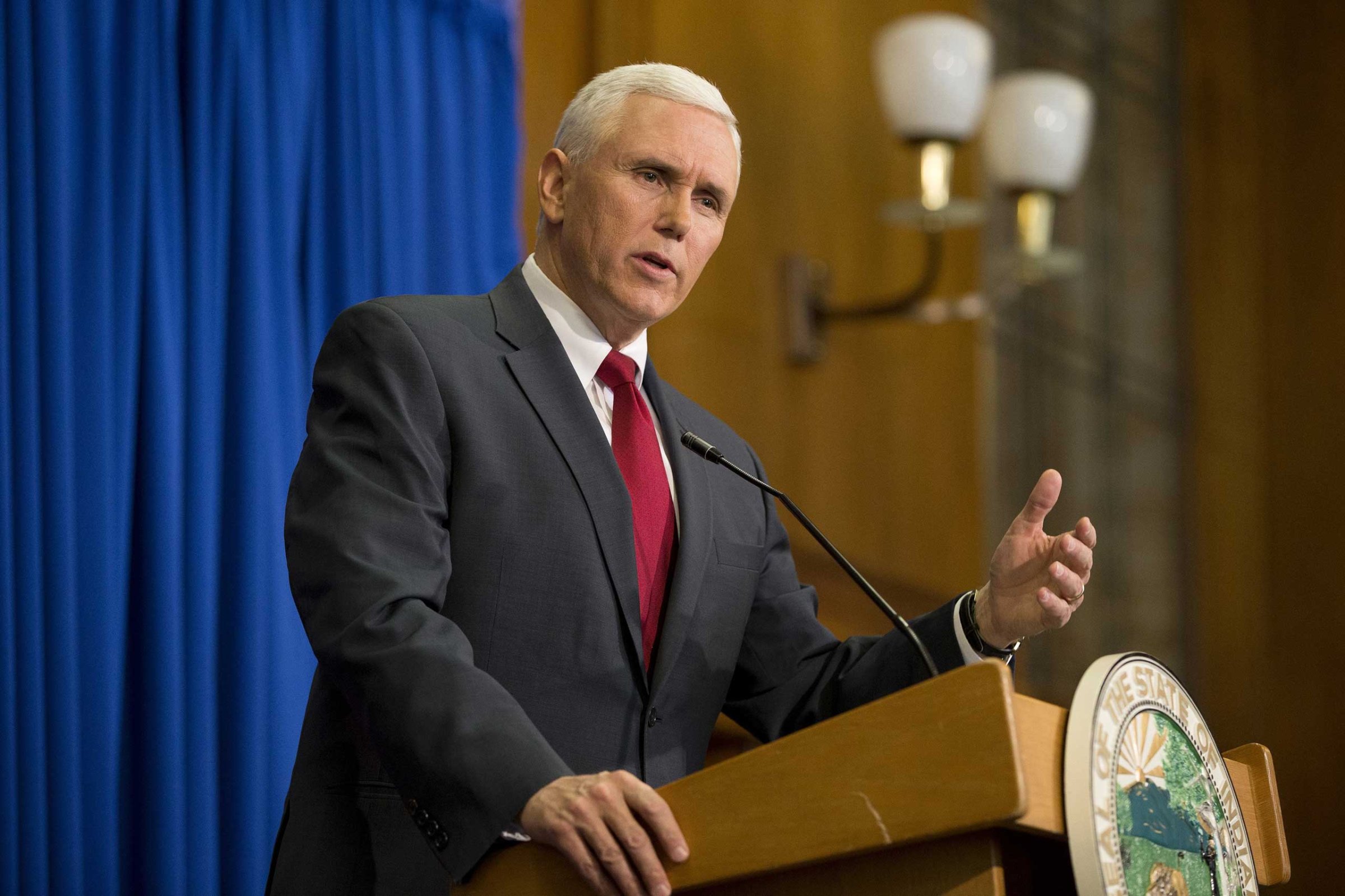
There are few immutable rules in politics. But here’s one: anytime you call a televised press conference to explain that you “abhor discrimination,” something’s gone awry.
Such was the plight of Indiana Gov. Mike Pence, who was dragged into the searing glare of the national spotlight Tuesday to defend a new state law that critics say will invite discrimination. That 37-minute gauntlet followed another televised grilling in which Pence dodged hypothetical questions about whether a wedding florist could deny service to gay couples. The controversy over Indiana’s new Religious Freedom Restoration Act (RFRA) enveloped the Hoosier State this week, sparking a massive outcry from businesses, activists and ordinary citizens.
But in gauging the damage inflicted on Pence, it’s worth recalling another of politics’ Newtonian laws: in partisan warfare, taking enemy fire for a cherished cause always mobilizes your own troops. For a conservative like Pence, becoming a liberal pariah is pretty good politics.
In other words, for a governor with half an eye on national office, there are worse moves than planting yourself at the center of a national controversy. Just ask Scott Walker, who vaulted from obscurity to the top of the early presidential pack primarily by picking a bruising fight with Wisconsin’s unions. Pence may have underestimated the blowback he’d get from signing the so-called religious-freedom statute. But the skirmish could help more than hurt in the long run.
In the near term, the battle of Indiana has raised the national profile of a first-term governor whom many Republicans have long dubbed a dark horse contender in the 2016 race. Pence has yet to spring from the starting gate: he hasn’t hired staff, built a fundraising apparatus or made the early trips to primary states that are reliable signs of presidential ambitions. But on paper, he is the kind of candidate capable of catching fire.
“Mike has a unique ability to rally people from all different sectors of the conservative movement,” says his former chief of staff Marc Short, who is now president of Freedom Partners, the political fund for the billionaire Koch brothers. “Mike models servant-leadership better than any politician or public official I know.”
Pence, 55, has described himself as a “a Christian, a conservative and a Republican, in that order.” This week’s legislative fight showcased the Christian part. But over six terms in the House of Representatives, Pence also built up glittering conservative credentials as he battled the Bush Administration on policies ranging from the bank bailout to No Child Left Behind to Medicare Part D. He left a coveted spot as chair of the GOP Republican Conference for the statehouse in Indianapolis, a perfect perch from which to mount a national campaign.
Pence is more likely than not to pass up a campaign. For one thing, Walker and perhaps Ohio Gov. John Kasich have already occupied the Midwestern governor’s lane on the road to the nomination. But after months off the national radar tending to the legislative session in Indiana, the RFRA fight “puts Pence right back in the center of the storm,” says a longtime party strategist. If he survives the tempest, he could steer himself into contention as a champion of an issue that is particularly dear to voters in the first-in-the-nation Iowa caucuses. “Pence right now has the opportunity to win the Republican nomination by standing firm,” argues Mike Farris, a conservative lawyer who helped draft the federal RFRA in 1993.
At the same time, a dramatic confrontation on a divisive social issue was hardly the best way to introduce himself to the mainstream voters Pence would need to mount a credible campaign. “Does it help him? I doubt it,” says one top Republican strategist who believes Pence’s team bungled the issue. “If the primary voters think you aren’t skilled enough to beat Hillary, you’re going to be in a bad spot whether you have a good [voting] scorecard or not.”
With reporting by Sam Frizell and Zeke J. Miller
More Must-Reads from TIME
- Donald Trump Is TIME's 2024 Person of the Year
- Why We Chose Trump as Person of the Year
- Is Intermittent Fasting Good or Bad for You?
- The 100 Must-Read Books of 2024
- The 20 Best Christmas TV Episodes
- Column: If Optimism Feels Ridiculous Now, Try Hope
- The Future of Climate Action Is Trade Policy
- Merle Bombardieri Is Helping People Make the Baby Decision
Write to Alex Altman at alex_altman@timemagazine.com